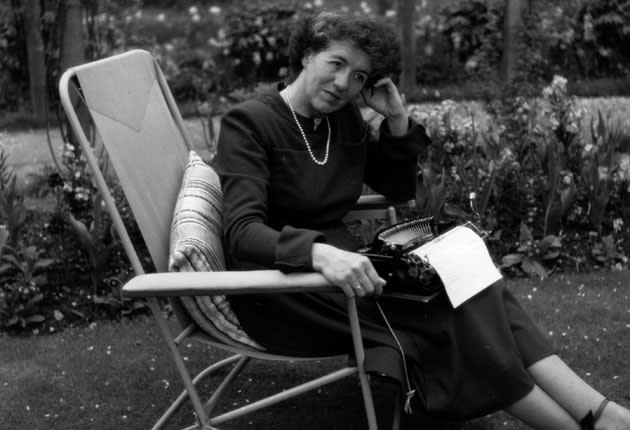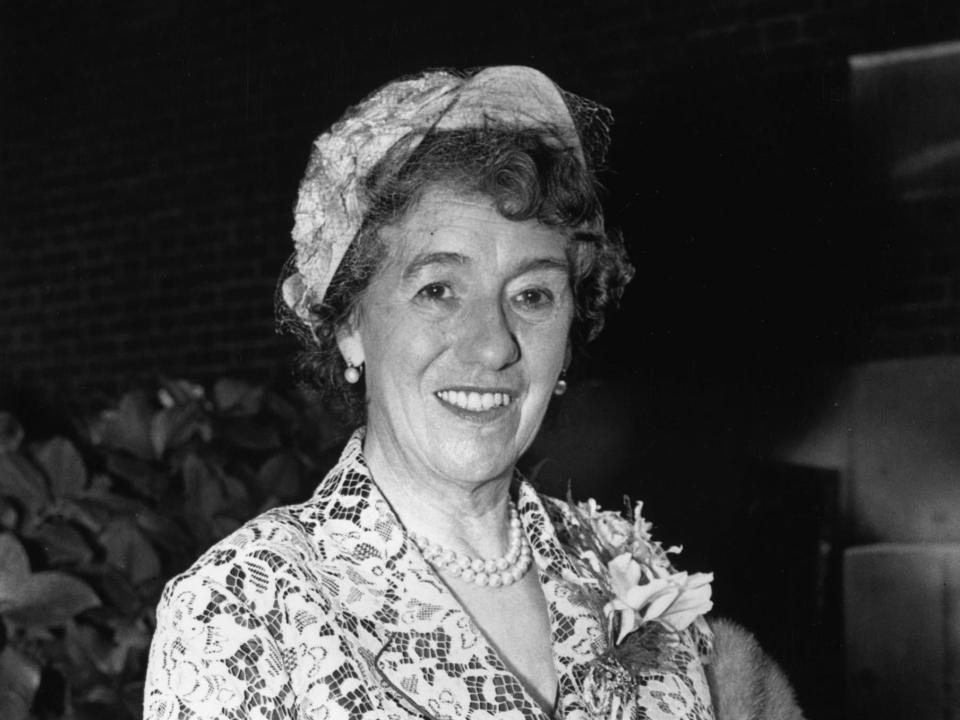English Heritage acknowledges Enid Blyton’s work as ‘racist and xenophobic’
- Oops!Something went wrong.Please try again later.

English Heritage has apparently updated its website to acknowledge children’s author Enid Blyton’s problematic views.
The late writer behind Noddy and the Famous Five books has experienced a reassessment over the years, but also faced criticism during her lifetime.
In 2019, plans to give her a commemorative coin were halted by the Royal Mint after members said she was “a racist, sexist homophobe and not a very well-regarded writer”.
According toThe Telegraph, English Heritage has now updated its website referring to this, following its pledge to review all of its blue plaques for links to “contested” figures following the Black Lives Matter protests last year.
A section on racism in Blyton’s page work reads: “Blyton’s work has been criticised during her lifetime and after for its racism, xenophobia and lack of literary merit.
“A 1966 Guardian article noted the racism of The Little Black Doll (1966), in which the doll of the title, Sambo, is only accepted by his owner once his ‘ugly black face’ is washed ‘clean’ by rain.
“In 1960 the publisher Macmillan refused to publish her story The Mystery That Never Was for what it called its ‘faint but unattractive touch of old-fashioned xenophobia’. The book, however, was later published by William Collins.”
English Heritage notes in its new information that some “have argued that while these charges can’t be dismissed, her work still played a vital role in encouraging a generation of children to read”.
“Our 1997 Blue Plaque to Enid Blyton is back in the news along with our online bio of the children’s author, whose books are loved by many. We can fit about 19 words on each plaque. Our website provides a fuller picture of the person’s life, including any uncomfortable aspects,” a statement posted on the English Heritage Twitter account said.
Our 1997 Blue Plaque to Enid Blyton is back in the news along with our online bio of the children's author, whose books are loved by many.
We can fit about 19 words on each plaque. Our website provides a fuller picture of the person's life, including any uncomfortable aspects.— English Heritage (@EnglishHeritage) June 17, 2021
“We have no plans whatsoever to remove any of our blue plaques. We’ll continue to update our website so that the story behind each plaque – and each person – is told in full.”
In 2019, the Royal Mint’s decision to stop the release of a commemorative Enid Blyton coin caused a considerable backlash.
“It seems to me that if you were to draw a line in the year say 1955 and go backwards from there you could pretty much pick up anybody based on our modern values,” Good Morning Britain host Richard Madeley said at the time.
The host added: “There are social lines that have changed and you can’t judge people by the standards of today, so actually I think personally to call Enid Blyton homophobic is ridiculous.”

A spokeswoman for the Royal Mint said at the time: “The point of the advisory committee is to ensure that themes commemorated on UK coins are varied, inclusive and represent the most significant events in our history.
“For these reasons not every event will progress to a UK coin.”
Blyton – who remains one of the bestselling children’s authors of all time – died in 1968, aged 71.
Read More
Bloomsbury: Publisher sees record profits as people turned to reading during lockdown
Freed: Christian Grey is as possessive and awful as ever in new Fifty Shades book

